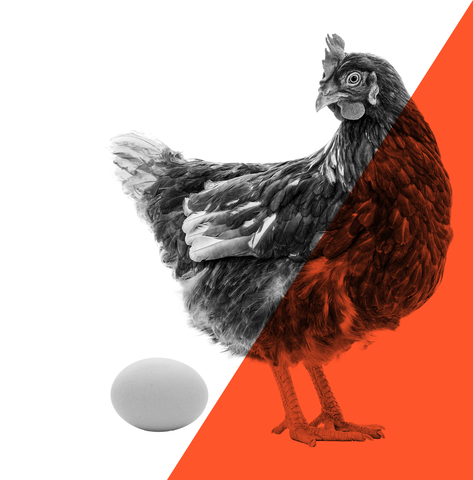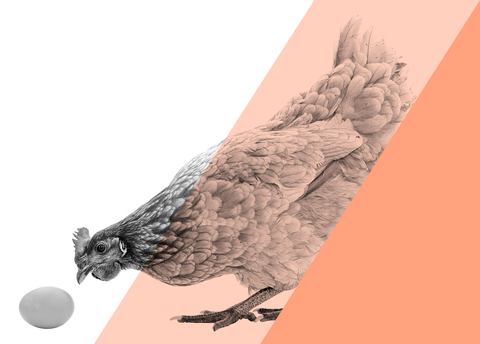Global competition, social pressure...Enhance poultry competitiveness!
Poultry sectors include the production of poultry meat and eggs. Poultry meat production is distinguished by the number of species (chicken, turkey, guinea fowl, roast duck, quail, pigeon) and by the share of quality signs.
Numerous uncertainties and threats now weigh on the poultry industry: international environment, competition, health crises, societal pressure. But opportunities exist ; taking animal welfare into account, investing efficiently, saving energy and, of course, optimising feed!
What is the use of sodium bicarbonate in poultry?
Reduce health problems and ensure the well-being of poultry
Sodium bicarbonate in poultry feed provides an ideal electrolyte balance
Feed used in the poultry industry must have an appropriate Electrolyte Balance in order to improve feed efficiency and limit health risks related to acid-base imbalances.
Due to the alkalinising effect of sodium bicarbonate, Bicar®Z restores the correct metabolic balance in poultry feed.
Discover Bicar®Z, the sodium bicarbonate supplement for your poultry.
Bicar®Z for poultry to prevent heat stress
As with ruminants and pigs, heat stress due to excessively high temperatures is becoming a growing problem for the poultry sector.
"In the 1980s, hens laid about 270 eggs in a standard production cycle, and this number has now risen to 340. This means that they have fewer resting days and are more likely to suffer from higher temperatures, which hampers the proper calcification of the shell".
Bicar®Z improves the zootechnical performance of poultry
Better egg quality for laying hens
Bicar®Z for poultry supports the growth of heavier eggs with a stronger shell.
A study carried out by the University of Padua has shown that :
- Hens that consumed Bicar®Z laid more eggs: 73.2% compared to 69.7% (vs. corn flour).
- The eggs had a thicker shell: 0.324 mm compared to 0.317 mm.
- The proportion of rough-shelled eggs was reduced (3.33% vs. 5.78%).
- The number of broken eggs also decreased (4.06% vs. 6.28%).
An increase in weight gain
The use of Bicar®Z promotes food efficiency as well as food consumption, thus helping to improve their daily weight gain.
An improvement in bedding quality
Bicar®Z reduces water intake by about 5% and therefore improves poultry litter.
Sodium Sulphate or Sodium Bicarbonate in poultry feed?
Sulphur irritates hens' intestines
Formulators decide to use sodium sulphate to replace sodium bicarbonate in poultry feed. However, due to the presence of sulphur, sodium sulphate irritates the poultry gut considerably and must be used with extreme caution and in any case in combination with astringent ingredients to keep the risks under control.
"The aim should not be to buy cheaper feed, but to keep chickens as cheap as possible by lowering the production cost per kilogram of meat. The cost of feed is easy to estimate, since it makes up 60 percent of production costs, but in reality you have to look at the profit and loss as a whole, just the cost of feed. In this respect, sodium sulphate is actually cheaper than sodium bicarbonate for poultry, but it has laxative effects. So I don't think it makes much sense to use sodium sulphate to ensure that the cost difference is minimal, while at the same time running the risk of having to administer astringent substances to balance the laxative effects"







